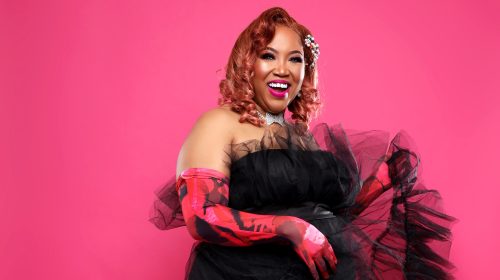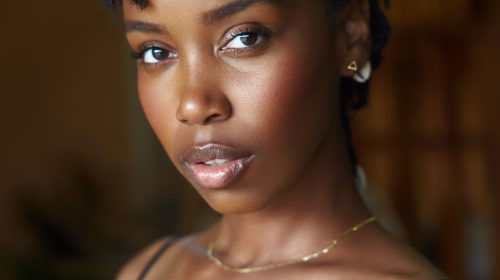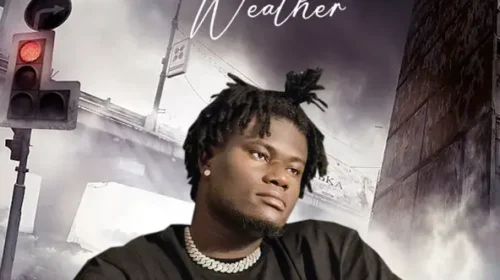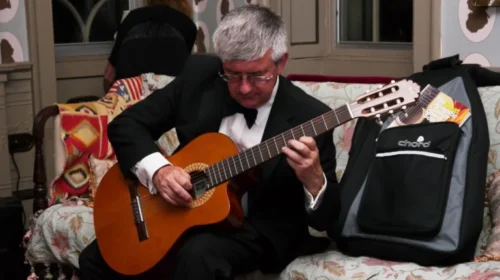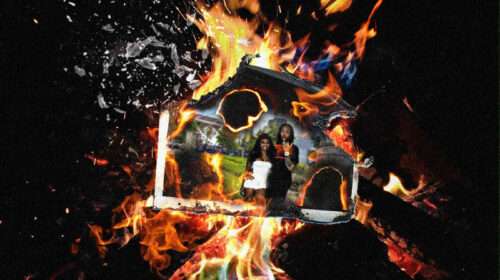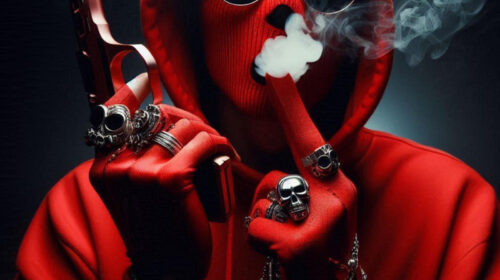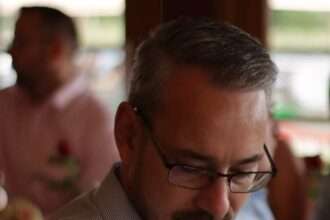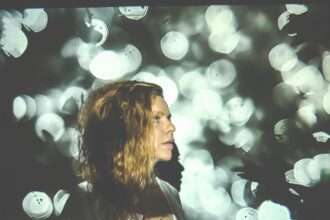We have the honor of speaking with Paul David Stanko, a remarkable indie musician who has embarked on an incredible journey fueled by a deep love for music. From his earliest memories of dancing around his parent’s living room to lip-syncing to records, his passion for music has always been ingrained in his soul. Paul David Stanko’s path as a musician started in college, where he initially pursued a career in music education.
Through his experiences, Paul David Stanko has developed a style that blends various influences and genres, creating a sound that is truly his own. His music reflects the swing band horn sound from his father’s love for 1940s swing, the easy-listening vibe from his mother’s musical tastes, and the rock guitar influence he discovered in high school. The Minneapolis Sound, popularized by the iconic Prince, has also played a significant role in shaping his approach to writing, arranging, and producing music.
What sets Paul David Stanko, apart is not only his diverse range of influences but also his ability to transcend genre boundaries and create music that defies categorization. As a drummer, he possesses exceptional sight-reading skills, enabling him to excel in various musical settings. His compositions blend elements from multiple genres, resulting in a fusion of styles that keeps his music fresh, dynamic, and difficult to pigeonhole. As an independent musician, he understands the importance of taking on multiple roles, from artist and producer to publicist and hype person.
We are thrilled to embark on this interview journey with such an extraordinary artist. His passion, resilience, and unwavering commitment to spreading positivity through his music are truly inspiring. Join us as we delve deeper into his world, discovering the stories behind his songs and the impact he hopes to make with his art.
Can you tell us about your journey as an indie musician? What inspired you to pursue a career in music?
For as long as I can remember, I have loved music. I remember dancing around my parent’s living room as a kid, lip-syncing to the records they had—mind you, this was the early ‘70 and my parents weren’t hip! My dad was stuck in the 1940s with the big band era and my mom went down an easy listening rabbit hole! I was lip-synching to The New Christy Minstrels and the Carpenters. But I loved the feeling music and song gave me.
When it came time to go to college, the only thing I could think to do was music. I applied to several colleges and Coe College in Cedar Rapids, Iowa, gave me an impressive scholarship. So, I set my sights on being a school music teacher.
While at school, I was one of the only drummers at the time and kept getting pulled to all the ensembles to play—and I found I really didn’t like kids much—so I changed my major from education to performance.
I fell in love with a large cousin of the xylophone, the marimba, and spent hours perfecting my craft. I was going to be the first world-class marimbaists with a purple mohawk. It was the 1980’s and I loved messing with my hair. For my junior percussion recital, I had finished directing my church choir for the morning, went to the mall, and had them shave my hair into a mohawk and color it purple. I walked on stage with a purple mohawk in a black tuxedo—I thought it was stunning. It was a good thing I could play because the classically focused faculty was not thrilled with the theatrics. The jazz and pop teachers were more supportive.
During college, I shed my protected, suburban background and began to discover who Paul David was—or was supposed to be. I, quite by accident, discovered my sexuality was not what I thought it was going to be. At college, I met my soul mate and tussled with my queerness bouncing from girlfriend to boyfriend as I discovered who, and how, I loved.
I truly loved my college experience. It was everything college should be. However, when I graduated, I found not everyone was beating down my door for a purple-mohawked classical marimbist.
Not really knowing where to begin, I got a job in a corporate-run record store. It really didn’t pay enough to free me from my debts, nor did I have enough time on salary to become the rock star (or classical marimbaist) that I wanted to be.
I also got a job at a local church, where I was very comfortable. I also found I had something to say. And in my heart, I was really a rock and roll baby. While working for the Metropolitan Community Church in Minneapolis, I sold my marimba and bought an electric keyboard that I could program with percussion, bass, horns—all the things I needed to take the music ministry I was working with to a higher level. In fact, that is still my main keyboard 25 years later in my home studio.
While working with the church, I got to write and arrange a lot—and work with volunteers. I polished my skills in not just composition and performance, but team building. That career path resonated with my soul.
However, the Universe decided it was time for Paul David to grow. I left that role for financial reasons and over the next two years, all I knew in my personal life was to be torn down to make a new creation. I ended a 15-year relationship when my partner got into drugs. That adventure ended up with losing not only my relationship but my home. The music went dormant for a while too. I was playing in a few pit orchestras, but the personal music creation was put on hold until I was asked by the local LGBT orchestra to write something for them. 2006 saw the birth and world premiere of “Emergence”—a tone poem inspired by the coming out process written specifically for the Minnesota Philharmonic Orchestra. Shortly after that, I met the man who I would marry, Tom.
As we put our life together, I began writing again and took a role with another church in their music department. When the pandemic hit, I had a lot of time to work in my studio and began churning out the music I am releasing today.
How would you describe your unique style and sound as an artist? What sets you apart from other musicians?
A lot of my music is reminiscent of the styles I grew up listening to. As I mentioned, my dad was really into 1940’s swing—Glenn Miller, Benny Goodman—so I have a strong influence of that swing band horn sound. My mom was really into The Carpenter’s and the “Easy Listening” sounds of the 1970’s, so that finds its way in. I RARELY heard what we call “classic rock” when I was growing up—that didn’t happen until later, but you’ll find a heavy influence of that rock guitar in what I do. I DID get into STYX and QUEEN in high school, so you hear that influence for sure.
Also while in high school I spent a lot of time with musicals. I, as a general rule, am not a HUGE fan of musical theater so to speak (so the irony that I play in a LOT of pit bands is not lost on me), but it definitely influenced me more than I might care to admit. I like the story in the song… so almost all of my music takes you on a lyrical journey.
While attending Coe College in Cedar Rapids, Iowa, I got to work with Dr. Paul Smoker. He was an Avant-Garde jazz trumpet player who was also the director of our jazz band. He taught me the importance of knowing the rules before you break them… but by GOD, break them! I learned the importance of improvisation… the freedom in form. The beauty found in chaos.
Being from Minneapolis, Prince played an ENORMOUS roll in influencing me as a writer, arranger, producer, etc. That Minneapolis Sound is not always top of mind when I write, but the work ethic and desire to experiment with sound and ideas is there.
But I do get influenced by what I hear today—Robyn, The Teddybears, Walk the Moon, Lizzo—all find their way into what I am writing.
It think what sets me apart from other musicians is, first off as a drummer, I am a great sight-reader. That helps a-lot with the shows I drum for. As a composer, I am not limited to one style of music. There are always influences from many genres in one piece. What I write is hard to pigeonhole. My iPhone is full of multiple genres of music, why shouldn’t I create the same variety myself?
I also know my perspective is unique. As with every artist, I am using the same 12 notes in various octaves colored by the timber of instruments I chose. My words are composed of the same 26 letters as every other artist. It is just my perspective on how to combine those letters, those notes and those sounds that make me unique.
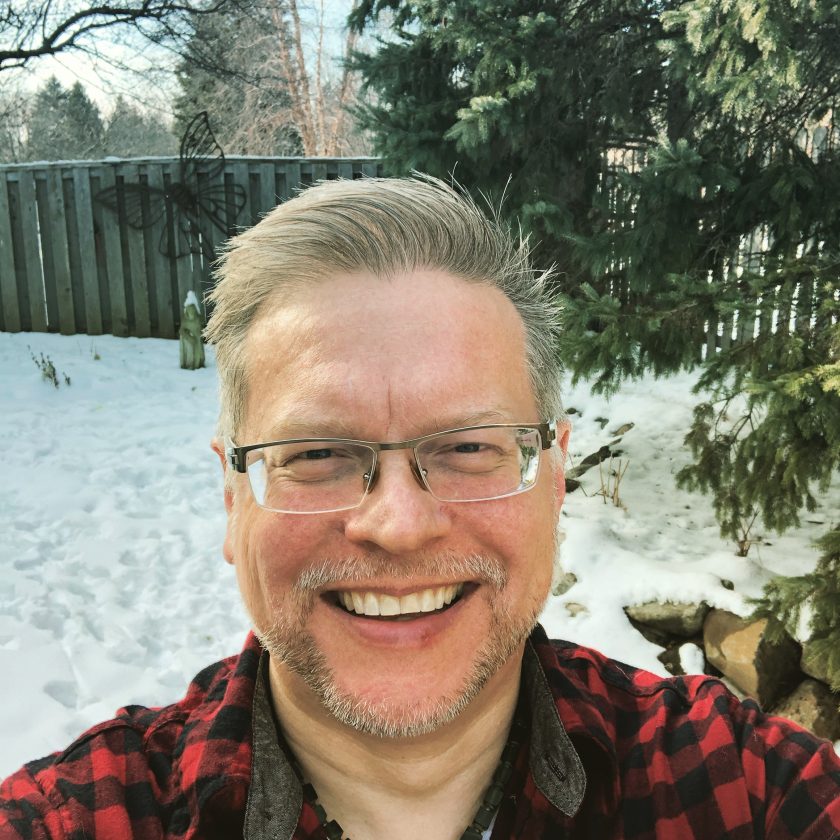
Could you share some of the biggest challenges you’ve faced as an indie musician and how you overcame them?
The biggest challenge as an independent artist is getting your music out there to the people because you are EVERYTHING: the artist, the producer, the publicist, the hype person.
Finding the time to do all of those things is difficult and hiring someone to assist costs money. I have hired a wonderful publicist to assist me but on a very small budget. A lot of it still falls to me to create the content she sends out on my behalf.
I just need to make time to get it all done, so it benefits an artist to be good at time management and to have a calendar they can use to schedule all the various parts of their “job”.
What is your creative process like? How do you approach songwriting and composing music?
It all depends on the muse. The music needs to go where the music needs to go.I usually begin with the whisp of an idea…perhaps a groove idea…perhaps a chord change… perhaps a great line. I may sit at my drums to find the groove or perhaps I find a sound on my synthesizer and see where that takes me. Sometimes the music comes first… sometimes the lyrics come (and those just generally sit in a pile until I need something to match to the music). Sometimes the whole thing comes along together or sometimes it comes in chunks. I have stacks of “works in progress” that may never be fully realized songs. BUT, all those stacks are resources if I get stuck while writing.
I find most recently that my process is simultaneous. I am writing words and music together. Each inspires the other. I am not bound by having to have a traditional chorus (Artist’s Prayer and elegy (for David) don’t have any choruses—like the Biblical psalms). As I said, the music needs to go where the music needs to go.
Are there any particular themes or messages that you aim to convey through your music? What inspires your lyrics?
I made the decision well after producing “Evolutions” to only write music with a positive message. My songs are about empowerment and have deep spiritual roots. My connection to Source Energy is very important to me and my musical journey has been strongly tied to that—a lot of that had to do with the majority of my musical output being performed in churches I worked for. But even my pop stuff has that sense of wonder and “what if”.
I want people to leave my songs and compositions with hope—with a sense of inspiration. “We Can B Free” is about realizing things aren’t what we’ve been told. If we all get along and stop giving power to “the man” we can change the world. “Superhuman” is a fun confection about embracing your cocky, wonderful self and just having fun. “Artist’s Prayer” is about knowing inspiration comes from Source Energy and getting yourself in a space for that. “Stardust Once Again” is about the “what if” after we die. Each of these compositions is meant to be fun but inspire the listener.
What are your long-term goals as an indie musician? Where do you see yourself and your music in the next few years?–
I am going to keep writing and releasing music. My real goal is, and always has been, to touch as many people as possible with my art. I plan to continue to do that.
I am also finishing up the writing of this very cool big band-influenced track, “Gotta Un-F*$% Myself” which I am hoping to collaborate with Matt Fink (Dr. Fink of Prince and the Revolution) again (we worked together on “Superhuman”) and Michael Bland from Soul Asylum.
It’s a track about how when I was younger I was more in touch with myself and my gifts and how I need to unlearn the things that made me put those things away. It’s a high energy, up tempo, romp with killer horn parts, and the vocals done in Andrew Sisters style… should be a BLAST! (clean version will be called “Gotta Unwind Myself”)
I also have been sitting on a super important song called “Affirmation.” It just needs a final mix (and maybe a few recording tweaks). It’s the most positive song in the world. VERY much inspired by Glee, it starts with just a piano but grows to the end with 100 PD’s (and a good friend Justin Vaughn) chanting “I am beautiful. I am powerful. I am loved. Nothing you say can take that away from me.”
I am very excited for that track to come out.



